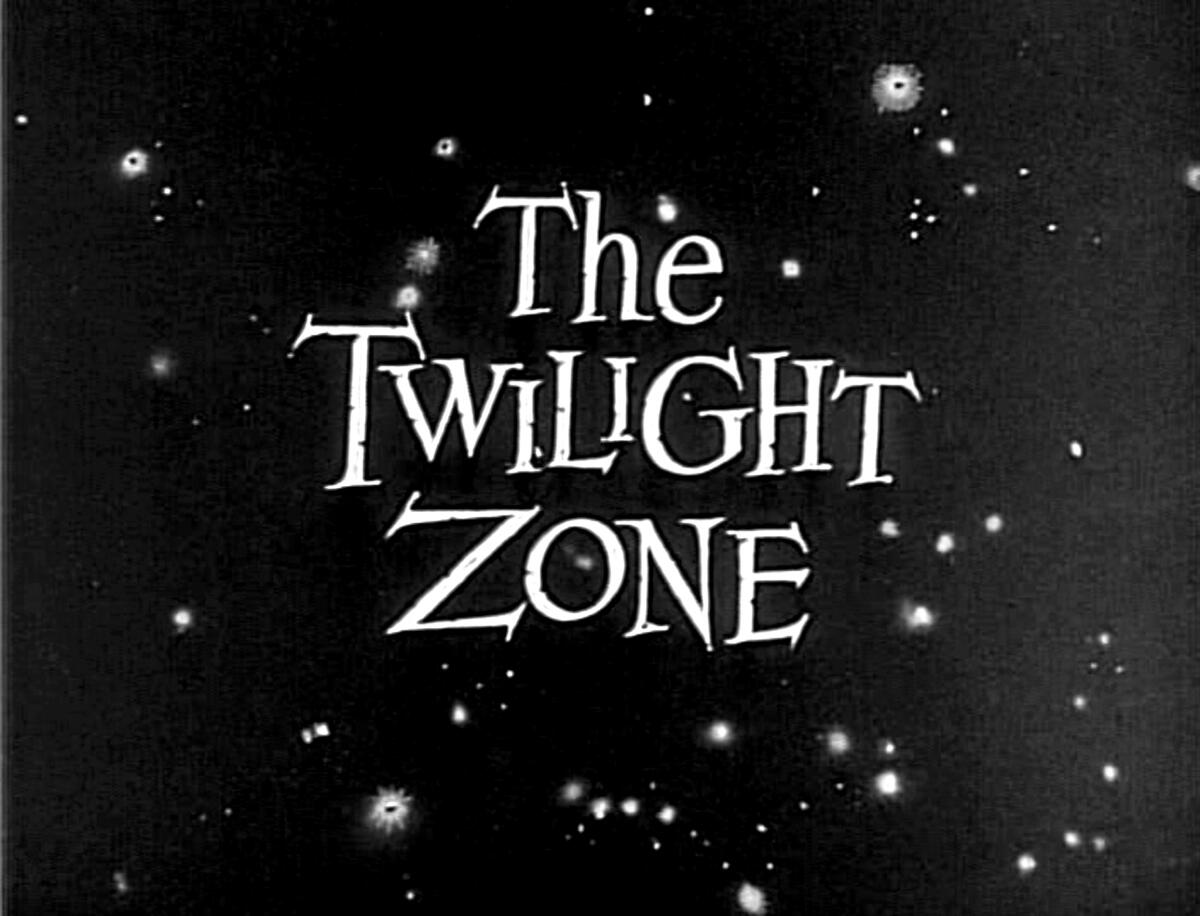Op-Ed: A chilling pandemic message for all of us from âThe Twilight Zoneâ

How many times in the last 12 months have you said to someone that you felt like you were living in âThe Twilight Zoneâ? While you might have been talking about your general sense of disbelief, Iâve been referring to a specific episode â one that sums up pandemic vs. humanity in a nutshell.
âButton, Buttonâ was the last episode of âThe Twilight Zoneâ I could stomach as a kid because it was creepy as heck. The plot is simple: A young, impoverished couple receive a box containing a button. A mysterious stranger arrives and explains that if they press the button, they will receive a significant cash windfall. But thereâs a catch â as a consequence of pushing the button, someone they donât know will die.
The husband and wife struggle with this dilemma, until the wife, portrayed by Mare Winningham, finally cracks and presses the button. When the stranger returns with the promised briefcase full of money, he retrieves the button and tells the wife he will be reprogramming it and presenting it to ⌠someone she doesnât know. And thatâs when it dawns on her: The next time someone pushes that button, sheâs the one whoâs going to die.
Scary stuff, right? No wonder I grew up afraid to so much as summon an elevator. But the scariest part for me was that I always thought of that episode as a distillation of a fundamental truth â maybe one I had learned growing up in a home with siblings with profound disabilities whose suffering so often seemed inconsequential to the outside world: Most people will do things to benefit themselves while causing other people to suffer, as long as they are spared the details.
There may be no better metaphor for this last year than The Button. Every day weâve made choices that weighed our own convenience, comfort and, yes, sometimes our own survival against the welfare of people whose names we didnât know.
Tired of isolation, some have broken ranks and met with friends at restaurants or homes, passing asymptomatic infection on to the people who serve their food and wash their dishes. Some have boarded planes and traveled across the country, becoming invisible links in a chain of transmission that has overwhelmed our ICUs and made morgues busier than Amazon.
Even our so-called pro-social choices have similar impacts. We get curbside delivery, but our food is picked and packaged by people working shoulder-to-shoulder in settings where COVID kills. We need to find ways to pass the time in isolation, so we order gadgets plucked off shelves for us by underpaid strangers working in cavernous, poorly ventilated warehouses. Now, as variants of concern take hold, we are still rushing our reopenings, no matter the human cost. Whether the choice to push the button is born of hardship, boredom or necessity, the truth about modern life in the First World is we push that button â with varying degrees of force â every single day.
Undoubtedly, my perspective is influenced by the fact that I am a doctor. As a physician friend recently told me: âEveryone is sick of the pandemic. But the difference between a lot of those people and us is that we have faces to connect to bad choices.â
As soon as she said it, I thought of The Button. Nothing about this is abstract for anyone who works in a nursing home, a hospital or, for that matter, a funeral parlor. For us, the people on the other side arenât strangers. Maybe youâve read their stories, but clicking on a sad headline while you drink a cup of coffee at your kitchen table will never modify your behavior in the same way as having to pull a sheet over a face.
Growing up in a family with problems, my lifeline became Alan Aldaâs Hawkeye on âMASH.â As a doctor fighting COVID-19, I channel his humor and rage.
Some people will argue that faces and names have nothing to do with The Button. They believe their hand should always be a free agent no matter the consequences, that their right to push any button has internal validity whether the button is hooked up to a keg of gunpowder or a string of patio lights. We probably canât change their views. The best we can do is try to ensure their buttons are stamped with the words âFisher Priceâ on the bottom, because we just waste priceless energy trying to outshout them.
Lately, Iâve been thinking about a story my dad shared with me. During World War II, he and his young friends were encouraged to bring whatever metal they could find to school to donate it to the war effort. Theyâd all line up and throw their contributions at a big picture of Hitler. Banners above the Fuhrerâs snarling face reminded them that their familyâs pots and pans would be melted to make the fuselage of the very planes that would drop bombs in the heart of Germany, helping to bring Allied troops home. In that moment, a line was drawn for those children that connected history, their power as individuals and the things they could do with their own hands.
So what of the power in our hands? An unfathomable number of leaders have simply used theirs to push The Button. In doing so, they have ignored another fundamental truth: Everything is connected, regardless of whether we want it to be. There is always a line between us and the lives of people we donât know; the next fate decided by an unseen hand could be our own. And a world where we live as though that isnât true is the one that very quickly becomes a real Twilight Zone.
Jillian Horton is a Canadian physician and writer. She is the author of âWe Are All Perfectly Fine: A Memoir of Love, Medicine and Healing.â @jillianhortonMD
More to Read
A cure for the common opinion
Get thought-provoking perspectives with our weekly newsletter.
You may occasionally receive promotional content from the Los Angeles Times.










